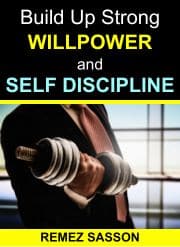
Everything boils down to choices. It’s one of the few shared experiences among humans. All of us make decisions. We all live with the results of the decisions we make. We also live with the results of the decisions that others make.
Ultimately, we only have control over the decisions that we make. That’s tough because the wrong decisions can lead to poor outcomes and regret.
The good news is that there are steps everyone can follow to help guide their decision making process.
Decide to Decide (or Not)
Browse our online courses on meditation, positive thinking, overcoming procrastination, confidence, and freedom from distractions.
Sometimes you have to make a decision quickly. There’s no time to delay. Truth be told though, that is pretty rare.
Many choices can, and should be, delayed. If any of the following are true, slow down. Whether it’s an hour or a year, chances are your decision can wait. The following assumes there is not an emergency.
- You are being pressured to make a decision by someone else.
- You are hungry, angry, lonely, or tired (HALT).
- The decision could have a significant impact on your life.
- The decision could have a significant impact on others.
- You don’t have all the facts or doubt the veracity of the facts you do have.
- You are overly emotional.
- No harm will come by waiting to make a decision.
- More or better options might be available if you wait.
- Somebody else should be making the decision, and wants you to take responsibility.
If there’s no reasonable chance of doing harm, never feel guilty about putting off a decision. In some cases, you are better off simply not deciding at all. If you feel ill-prepared, but cannot wait long, try the next steps.
Recognize and Mitigate the Factors that Could Lead to a Bad Decision
First, if HALT is an issue, deal with that first.
Eat, rest, touch base with a friend, and work on your emotions.
Acknowledge them, meditate, try some deep breathing exercises, or write your feelings down. Do the same if you are fearful or upset. Get in touch with your emotions and then get in control of them.
Next, go over the information that you do have. Is it all trustworthy? Should you investigate more? Are there more options than you realized?
Now, what about your own motivations?
Are you considering options that are ultimately selfish?
Are you okay with that? Are you looking for an easy or conflict free decision now, even if it isn’t the right one?
Even if the choice isn’t life changing, avoiding difficulties and procrastinating can still cause inconvenience down the road.
Play the Tape Forward
There’s no way to fully predict the outcome of any decision. Still, most choices are not made in a vacuum.
Chances are, you can make some pretty good predictions based on your knowledge of the people involved, and by doing a bit of honest, historical analysis. You don’t need to have an exact experience to be able to consider the potential impacts.
Here are some questions to ask yourself:
- How has this worked out in the past when I’ve made a similar decision?
- Will I or anyone else in the same situation behave or react differently?
- What are all of the potential negative consequences for each of my possible choices?
- What are the positive consequences?
- Are there any true unknowns?
- What will the results look like in a day, week, month, or year?
In order for this to be successful, you have to be honest with yourself. Try to think in terms of what will likely be true, not what you would like to be true.
Let’s imagine you are planning a European vacation with friends. You’ve long been designated ‘the organized one’, and much of the planning has been turned over to you.
You don’t mind helping, but are a bit annoyed that you are doing most of the work. Another friend offers to take on some of vacation preparation tasks.
The only problem is that she is well-intentioned, but a flake.
Going over the questions above, you sincerely doubt the outcome will be good if you rely on your friend to do much heavy lifting. You certainly don’t want to have to clean up any messes.
So, you decide to handle most of the planning yourself. This includes finding a reliable service where you can translate anything to ensure everyone has the travel documents that they need.
Seek Wisdom and Information
This is the most important step of all. Learn more. Investigate your options. Find trustworthy sources and gather as much information as possible.
Get the perspective of people that you trust. If you have facts that you are unsure of, verify them. Be wary of biased sources and people with an agenda. Take the time to research.
Prepare for Outcomes if Possible
If you can, try to predict possible outcomes. Then prepare yourself. As an example, let’s say that you need to decide whether or not to attend college over the summer.
You take everything into consideration, and decide to enroll in three classes.
You know that one of the consequences is that you won’t have much downtime. That’s tough, because the last semester was rough. You will also need to work part time to pay for insurance, gas, food, and living expenses.
To make things more bearable, you plan to do the following:
- Schedule your classes and work availability to have at least one day off each week.
- Commit to three hours a week at the gym to work out some stress.
- Plan an end of summer fishing trip as a major reward for your hard work.
- Make sure one class is an easy A.
Let it go and Feel Confident
There are no guarantees, but if you follow this guide you can feel better about the decisions you make. After all, there’s nothing more you can do than becoming as informed as possible, being honest with yourself, considering all of the possible outcomes, and preparing for the results.
About the Author
Margaret Reid is a freelance writer who is seeking to discover new ways for personal and professional growth. Currently she`s working in the company The Word Point and trying to improve herself in the blogging career. Margaret is an experienced and self-driven specialist who cannot imagine her life without writing.

